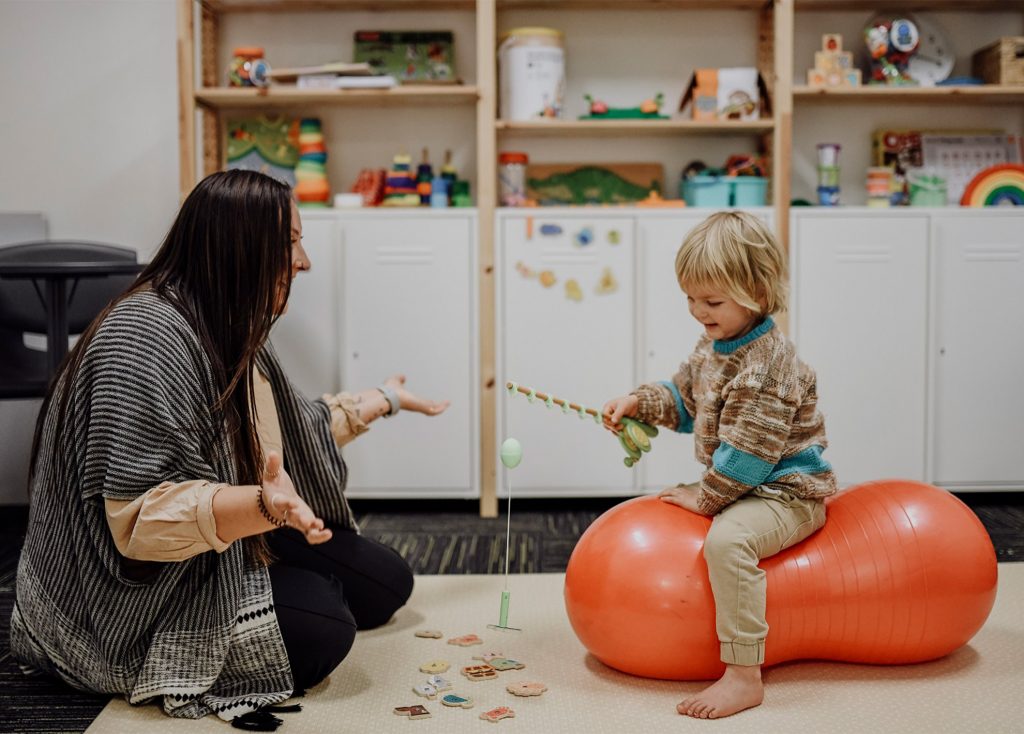
Promoting healthy growth and development
Paediatric physiotherapy plays a crucial role in promoting the healthy growth and development of children. From infancy to adolescence, children go through various stages of physical, cognitive, and emotional development. Physiotherapy interventions specifically designed for children help ensure that they reach their developmental milestones and overcome any physical challenges they may face along the way.
Child development therapy
Child development therapy focuses on addressing any delays or difficulties a child may experience in their physical development. This specialized therapy aims to enhance a child's overall physical function, gross motor skills, coordination, balance, and strength. It takes into account the unique needs of each child and offers tailored treatment plans to facilitate their progress.
One of the primary goals of child development therapy is to enable children to participate fully in their daily activities, such as playing, socializing, and learning. By addressing physical limitations or delays early on, paediatric physiotherapy plays a vital role in setting the foundation for a child's future development.
Importance of physiotherapy
Paediatric physiotherapy offers a wide range of benefits for children and their development. Let's explore some of these key advantages:
1. Early intervention
Children who receive physiotherapy interventions from an early age have a better chance of overcoming physical challenges and achieving optimal development. By identifying potential issues and addressing them promptly, physiotherapists can help prevent long-term disabilities or limitations.
2. Motor skills development
Physiotherapy interventions focus on enhancing a child's motor skills, including their ability to crawl, walk, run, jump, and manipulate objects. These fundamental motor skills not only facilitate physical independence but also contribute to a child's overall cognitive and academic performance. Through various exercises and activities, physiotherapists help children improve their posture, balance, coordination, and strength.
3. Rehabilitation after injury or illness
If a child has suffered an injury or is recovering from an illness, paediatric physiotherapy can significantly aid in their rehabilitation process. Physiotherapists design specific treatment plans to help children regain their strength, mobility, and function. These tailored interventions not only speed up the recovery process but also minimize the risk of potential complications.
4. Management of chronic conditions
Many children live with chronic conditions that may affect their physical abilities and overall quality of life. Paediatric physiotherapy plays a critical role in managing these conditions and maximizing a child's potential. Physiotherapists work closely with children and their families to develop personalized strategies that alleviate symptoms, enhance function, and promote overall well-being.
5. Enhancing social and emotional development
Physical limitations or delays can often impact a child's social and emotional development. Paediatric physiotherapy helps children improve their physical abilities, which, in turn, boosts their confidence and self-esteem. By facilitating independence in physical activities, physiotherapy empowers children to actively engage in social interactions, sports, and recreational activities, promoting their overall social integration and emotional well-being.
6. Collaborative approach
Paediatric physiotherapy involves a collaborative approach where physiotherapists work closely with other healthcare professionals, educators, and parents. This multidisciplinary approach ensures holistic care for the child and allows for the integration of physical therapy strategies into various aspects of their daily life, such as school and home environments.
It is important to recognize that every child is unique, and their developmental journey may vary. Paediatric physiotherapists assess each child individually to understand their specific needs and develop personalized treatment plans. By providing a supportive and inclusive environment, physiotherapists empower children to reach their full potential.
In conclusion, paediatric physiotherapy plays a crucial role in promoting healthy growth and development in children. Through early intervention, motor skill development, rehabilitation after injury or illness, management of chronic conditions, and the enhancement of social and emotional development, physiotherapy interventions contribute significantly to a child's overall well-being. By adopting a collaborative approach and tailoring treatment plans to meet each child's unique needs, paediatric physiotherapists ensure that every child has the opportunity to thrive and reach their full potential.























